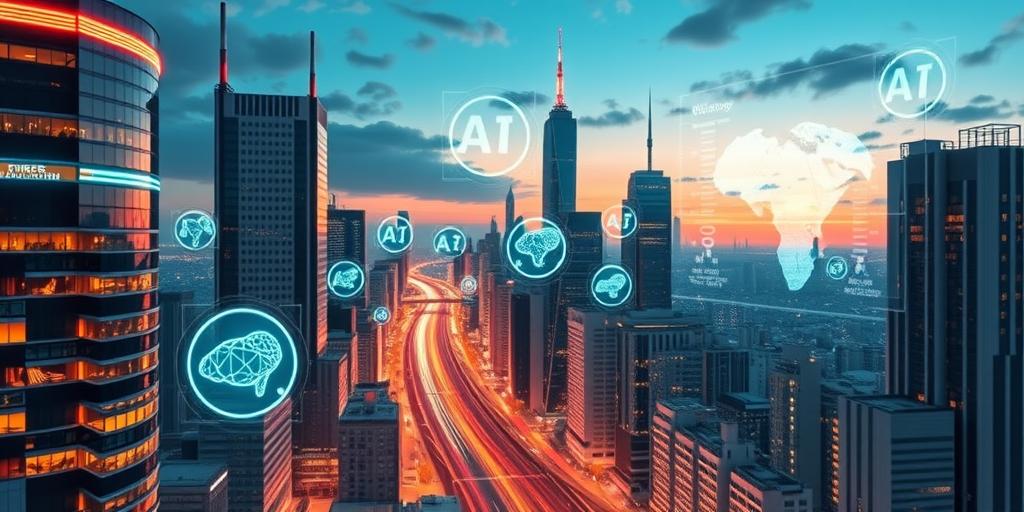AI for Good: Solving Global Challenges in 2025
Artificial Intelligence (AI) is rapidly evolving, and its potential to address some of the world’s most pressing issues is becoming increasingly apparent. By 2025, we can expect to see significant advancements in AI applications that contribute to solving global challenges. This article explores the transformative impact of AI across various sectors, highlighting its role in creating a better future.
Healthcare Revolution
AI is set to revolutionize healthcare through improved diagnostics, personalized treatments, and drug discovery. Machine learning algorithms can analyze vast amounts of medical data to identify patterns and predict disease outbreaks. AI-powered robotic surgery will enhance precision and reduce recovery times. Furthermore, AI can assist in developing new drugs and therapies by accelerating the research process.
Environmental Sustainability
Environmental sustainability is another area where AI can make a substantial impact. AI algorithms can optimize energy consumption, predict weather patterns, and manage natural resources more efficiently. Smart agriculture, driven by AI, can reduce water usage and minimize the environmental impact of farming. AI-powered monitoring systems can detect deforestation and track wildlife populations, aiding conservation efforts.
Poverty Reduction
AI can play a crucial role in poverty reduction by improving access to education, financial services, and job opportunities. AI-driven education platforms can provide personalized learning experiences to students in remote areas. Fintech companies can use AI to assess credit risk and offer microloans to underserved populations. AI-powered job matching platforms can connect job seekers with relevant employment opportunities.
Disaster Response
In disaster response, AI can enhance preparedness and improve the efficiency of relief efforts. AI algorithms can analyze data from various sources to predict natural disasters and provide early warnings. Drones equipped with AI can assess damage and identify survivors in disaster-stricken areas. AI-powered logistics systems can optimize the distribution of resources to those in need.
Ethical Considerations
While AI offers tremendous potential for good, it is essential to address ethical considerations. Bias in AI algorithms can perpetuate inequalities, and the misuse of AI can have unintended consequences. It is crucial to develop ethical guidelines and regulations to ensure that AI is used responsibly and for the benefit of all.
Conclusion
By 2025, AI will be a powerful tool for solving global challenges. Its applications in healthcare, environmental sustainability, poverty reduction, and disaster response have the potential to transform the world for the better. However, it is essential to address ethical considerations to ensure that AI is used responsibly and equitably. As AI technology continues to advance, its role in creating a more sustainable and just future will become increasingly significant.
